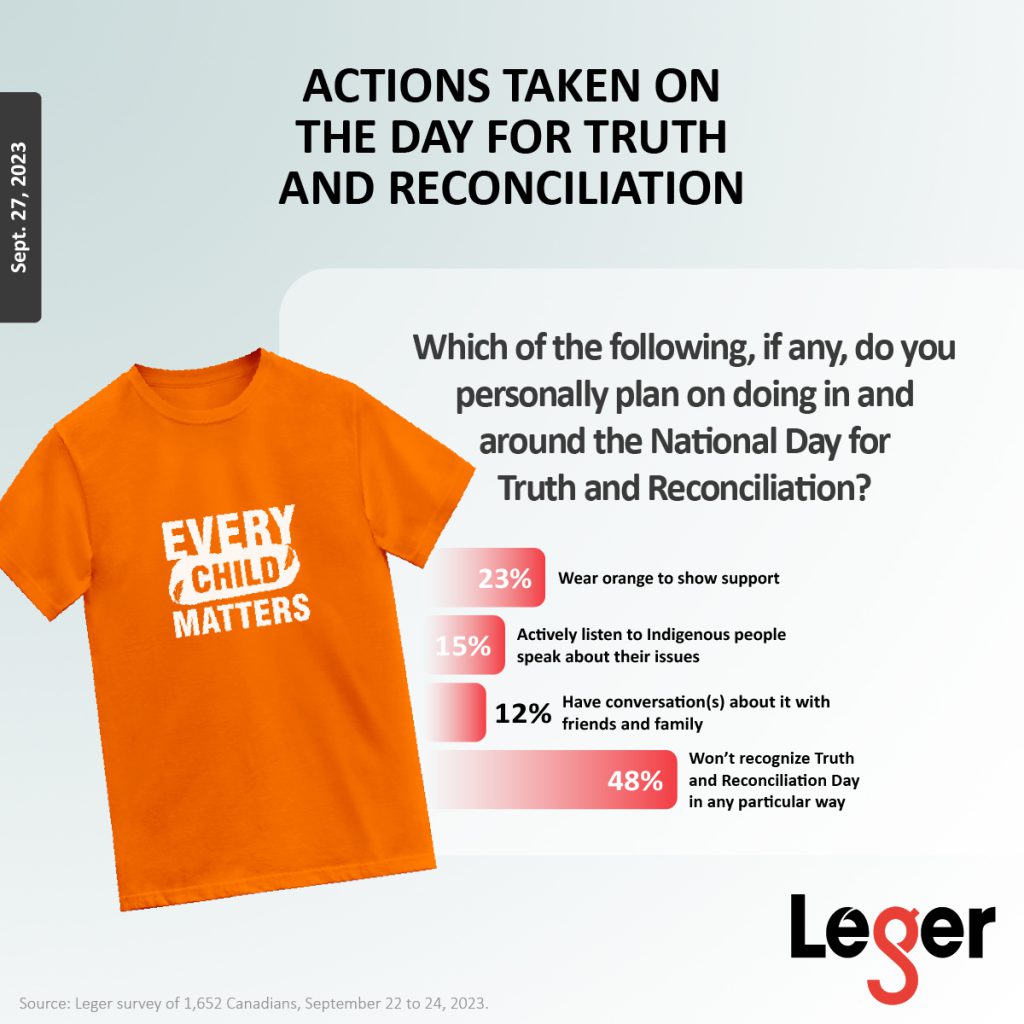Since 2021, September 30 has been the National Truth and Reconciliation Day in Canada, honouring Indigenous children who never returned from residential schools and supporting their families and communities. From September 22 to 24, 2023, we surveyed Canadians to understand their attitudes and actions they will be taking on this day.
Some of the key highlights of our survey about Truth and Reconciliation Day include…
Canadians Feel They Are Less Aware of Indigenous Peoples’ History
- 24% of Canadians think they are much more aware of the history of Indigenous peoples in Canada compared to 4 or 5 years ago, while 39% think they are a little more aware, 26% think they are no more or less aware and 4% are less aware.
- Comparing this year’s survey results to the 2022 survey on the same topic, fewer Canadians think they are a little more aware (42% in 2022 vs 39% in 2023) or much more aware (30% in 2022 vs 24% in 2023).
- 48% of Canadians believe moderate progress has been made in Indigenous reconciliation since the Truth and Reconciliation report was finalized 8 years ago.
Half of Canadians won’t recognize Truth and Reconciliation Day in any particular way
- While 57% of Canadians think there are bigger societal challenges in Canada, 65% agree that they are much more understanding of why reconciliation is important for Indigenous Peoples in Canada. 43% are frustrated that reconciliation is moving so slowly and that no real progress is being made.
- On the Truth and Reconciliation Day, 23% of Canadians will wear orange to show their support, 15% will actively listen to Indigenous people speak about their issues, and 12% will have conversations about it with friends and family. However, 48% of Canadians say they won’t be taking any specific action to recognize the day.

METHODOLOGY
This web survey was conducted from September 22 to 24, 2023, with 1,652 Canadians, 18 years of age or older, randomly recruited from LEO’s online panel.
A margin of error cannot be associated with a non-probability sample in a panel survey. For comparison, a probability sample of 1,652 respondents would have a margin of error of ±2.4%, 19 times out of 20.
